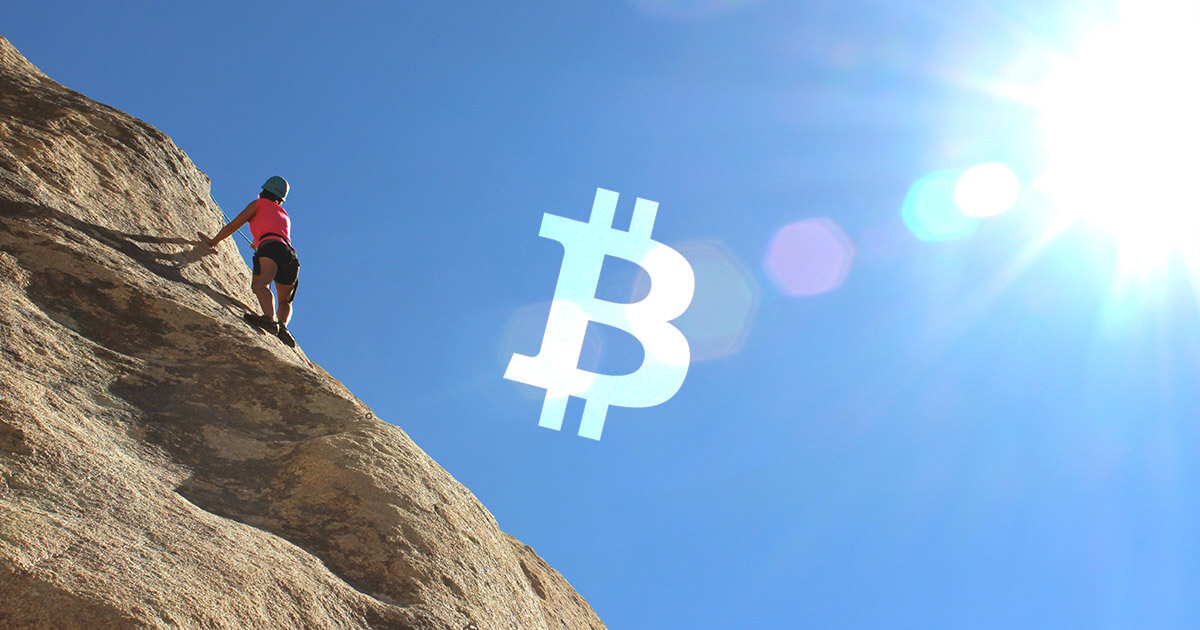Despite the introduction of Bitcoin futures and the entrance of like Fidelity Investments and the Intercontinental Exchange (Bakkt) into the cryptocurrency space, Wall Street investors still largely shun BTC.
Warren Buffett — one of the world’s richest men — recently doubled-down (or what must be quadrupled-down by now) on his sentiment that Bitcoin is intrinsically worthless in his eyes because it generates no revenue and produces nothing:
“You can’t do anything with it except sell it to somebody else,” he added. “But then that person’s got the problem.”
The skepticism has been echoed by Ray Dalio — co-head of Bridgewater Associates, the world’s most valuable hedge fund. While Dalio is a fan of gold, he told CNBC earlier this year that he doesn’t see Bitcoin as a store of value or a medium of exchange, making it have little investment value in his eyes.
And these are just two of many cynics.
Thus, when it was revealed this week that Paul Tudor Jones (PTJ) — a macro investor with decades of experience and a net worth of over $5 billion — was bullish on Bitcoin and would be buying futures, many were quick to respond with excitement.
An analysis by the executives of California-based crypto fund manager Bitwise Investments recently explained the three key reasons why Jones’ comments on BTC are so important for the narrative moving forward. Bitwise, in fact, called it a “big deal.”
What did Paul Tudor Jones say about Bitcoin?
Before we dive into Bitwise’s analysis, we should give some context about what Paul Tudor Jones said.
In a note dubbed “The Great Monetary Inflation” — in which the hedge fund manager laid out the case for imminent inflation in fiat money due to central banks — Jones explained what assets he is betting on to protect his portfolio.
While he mentioned the normal bets like gold and U.S. Treasuries, the piece had a big focus on Bitcoin, with Jones writing how he thinks there is a “growing role” for the cryptocurrency, which he likened to gold in the 1970s prior to a massive bout of inflation.
#1: PTJ proves Bitcoin is good enough for institutional investors
In buying Bitcoin futures, Bitwise wrote, PTJ just validated the cryptocurrency market as a proper medium for institutional investment:
“Jones wouldn’t invest his client’s money in bitcoin if he believed it was illegal, a manipulated market, a Ponzi scheme headed for 0, likely to be hacked, or not feasible for an institution to trade or hold.”
More specifically, by investing in the cryptocurrency, Jones and his team have accepted the risk of the cryptocurrency’s volatility as fiduciaries. “Fiduciary” is a term in the investment world describing an entity or individual managing assets in good faith and trust on behalf of another.
That’s to say, PTJ has just put his reputation on the line by buying Bitcoin, showing how confused he is of this play.
#2: The barriers to entry for crypto just dropped dramatically
In a similar vein, Bitwise remarked that by investing in the leading cryptocurrency, he has dramatically reduced the “career risk for those considering” Bitcoin as an investment or career path:
“His taking a public bet on bitcoin provides air cover for other investors advocating for allocations to their investment committees. […] Moreover, it adds pressure for those who’ve dismissed bitcoin without doing their homework.”
PTJ’s support of Bitcoin is decisively different than that of other Wall Street investors-turned-crypto buyers because he is the seventh-highest-earning hedge fund manager of all time and was called by Michael Novogratz as one of the “Big Four” in the macro investment space.
#3: Jones has a “strong” macro track record
Speaking of his clout in macro hedge fund circles, Bitwise’s final point was that Jones has a long track record of making good calls of macroeconomic shifts, predicting the 1987 crash and the deflationary implosion of Japan, “amongst other moves.”
Him putting his dollars into Bitcoin shows that he thinks it’s a smart long-term bet. And considering his track record, that means BTC could be at the start of an even greater bull run than the last.
It’s already having effects
His piece is seemingly already having effects on the psyche of Bitcoin futures traders.
BlockTower’s Avi Felman noted that in the wake of the release of PTJ’s “The Great Monetary Inflation” document, open interest on Bitcoin’s CME futures skyrocketed while volumes flatlined. This purportedly indicates that there are “more people getting long-term exposure to BTC,” seemingly because they were convinced of the bull case laid out by the hedge fund manager.
Notice how OI on the CME is skyrocketing, but volumes aren’t up. What to make of it?
Well, people like PTJ using futures as exposure. Less people trading, more people getting long term exposure. https://t.co/n6jsZzFowC
— Avi IS RIGHT (@AviFelman) May 8, 2020
















